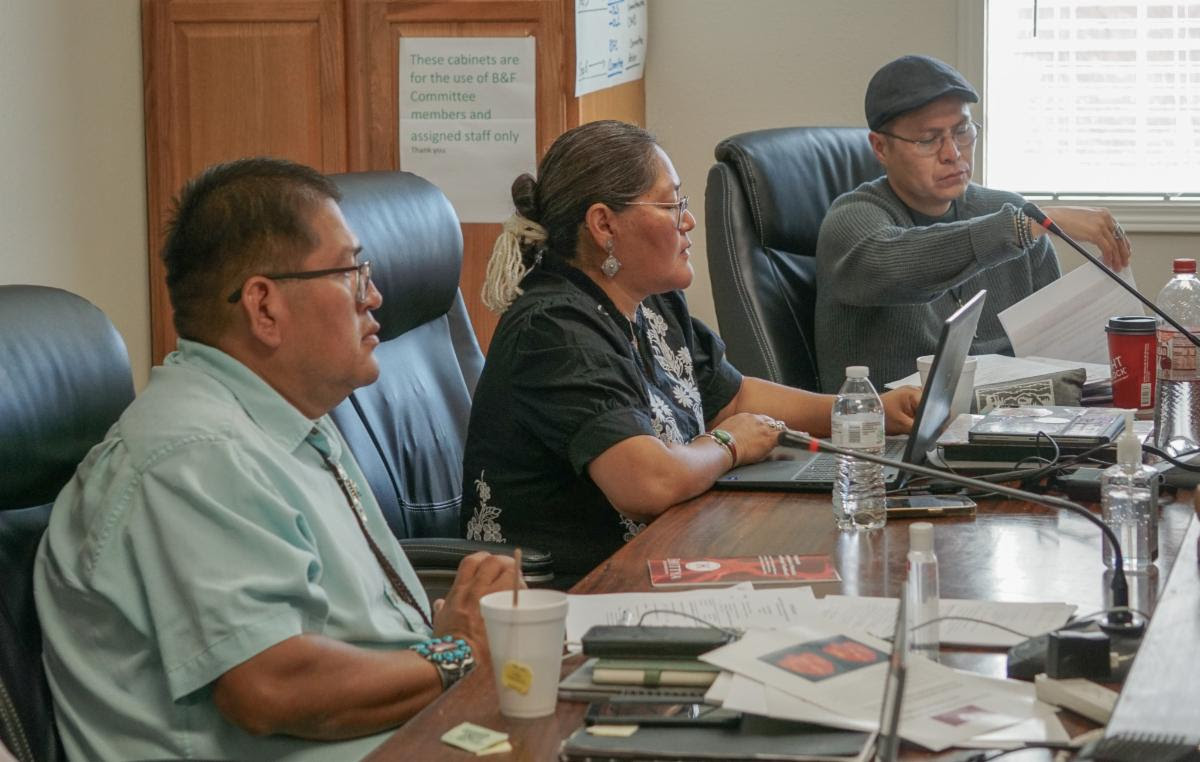
- Details
- By Native News Online Staff
On September 8, the Health, Education, and Human Services Committee (HEHSC) convened to review ongoing housing construction and renovation efforts administered by the Navajo Veterans Administration (NNVA). Committee members raised concerns over delayed home completion, uneven distribution of homes across agencies, and inadequate communication with veterans and families awaiting housing.
The NNVA reported that a total of 264 veterans are listed for housing renovation, with 67 homes under construction and 18 homes completed and granted to veterans. However, 12 completed homes remain unoccupied due to pending water and electricity hook-ups. The agency confirmed that approximately $9.8 million in ARPA housing funds remain unspent out of the original $50 million allocation, with a deadline to expend the funds by September 2026.
Committee members highlighted several key issues. Delegate Helena Nez Begay stressed that veterans and their families must be treated with greater dignity and kept informed throughout the process, noting that some homes had been delivered but remained unfinished for months
Vice Chair Germaine Simonson questioned why Central Agency had received a larger share of homes and suggested that the strategies used to prepare veterans for eligibility there should be shared with other agencies. She also recommended the NNVA explore temporary solutions such as solar power for homes that remain off-grid.
Council Delegate Dr. Andy Nez raised concerns about the slow pace of policy reviews and asked the administration to consider ways to streamline eligibility requirements, so veterans are not burdened with unnecessary steps. He also sought assurances that the ARPA funds would be fully spent before the federal deadline.
Delegate George Tolth pressed the agency to strengthen oversight of contractors and develop a clear housing plan, cautioning that delays and uneven distribution risk leaving veterans without needed support even while significant funds remain unused.
NNVA officials responded that renovation contracts are currently under the 164 review process and are expected to move forward in the new fiscal year. Presenters acknowledged communication gaps and committed to having housing specialists provide regular updates to veterans. Regarding delays in utility hook-ups, officials explained that coordination with NTUA and other providers is ongoing but subject to extended timelines and noted that temporary solar options are being explored for remote homes.
On policy issues, NNVA representatives clarified that veterans must remain the primary leaseholders on home site applications to ensure long-term security, though amendments to streamline eligibility are under review. Officials also pledged to hold additional application drives in underserved regions, including Utah Navajo, to ensure equitable distribution of homes across all agencies.
The Health, Education, and Human Services Committee voted four in favor and none opposed, to accept the NNVA housing report with directives, reaffirming its commitment to ensure that Navajo veterans and their families receive timely and equitable housing support.
More Stories Like This
Native News Weekly (August 25, 2024): D.C. BriefsNavajo Nation Mourns the Passing of Former Vice President Rex Lee Jim
Deb Haaland Earns Endorsement From Communications Workers of America Local 7076
University Soccer Standout Leads by Example
Two Native Americans Named to Democratic Congressional Campaign Committee's“Red to Blue” Program
Help us defend tribal sovereignty.
At Native News Online, our mission is rooted in telling the stories that strengthen sovereignty and uplift Indigenous voices — not just at year’s end, but every single day.
Because of your generosity last year, we were able to keep our reporters on the ground in tribal communities, at national gatherings and in the halls of Congress — covering the issues that matter most to Indian Country: sovereignty, culture, education, health and economic opportunity.
That support sustained us through a tough year in 2025. Now, as we look to the year ahead, we need your help right now to ensure warrior journalism remains strong — reporting that defends tribal sovereignty, amplifies Native truth, and holds power accountable.
 The stakes couldn't be higher. Your support keeps Native voices heard, Native stories told and Native sovereignty defended.
The stakes couldn't be higher. Your support keeps Native voices heard, Native stories told and Native sovereignty defended.
Stand with Warrior Journalism today.
Levi Rickert (Potawatomi), Editor & Publisher

